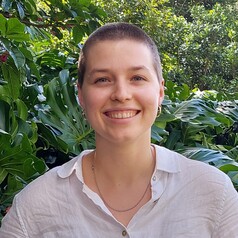
Suzanne Musgrave
Doctoral Candidate, School of Biological Sciences and Centre for Brain Research, University of Auckland, Waipapa Taumata Rau
Suzanne Musgrave is a PhD student at the School of Biological Sciences at the University of Auckland, Waipapa Taumata Rau. Her current research investigates the genetic variation that underlies neurodevelopmental conditions.
Less ![]()
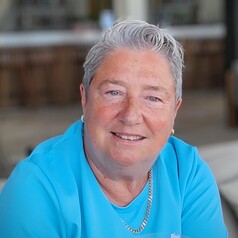
Suzanne O'Neill
Adjunct Assistant Professor in Department of Classics, Trinity College Dublin
I currently teach Greek and Roman Mythology and Religion, Greek Archaeology and Classical Architecture: Reception and Re-imaginings in the Department of Classics. I also teach on several programmes in the School of Histories and Humanities and I am the lecturer in Ancient Greek and Roman History on the Trinity College Access Programme. My research interests include the reception of classical material culture and Irish cultural and political engagement with Classics.
Less ![]()

Suzanne Onstine
Associate Professor, Department of History, University of Memphis
I am the director of the University of Memphis Mission to Theban Tomb 16 (Panehsy). We are studying a 19th dynasty tomb and the secondary burials in it through epigraphy, archaeology, and forensic studies of the human remains. We have been working in TT16 since 2008 and have unearthed hundreds of bones and mummy fragments.
Less ![]()
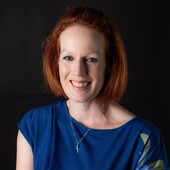
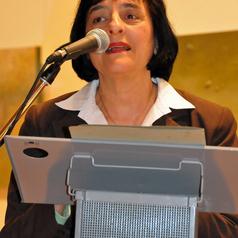
Suzanne Rutland
Professor of Hebrew, Biblical and Jewish Studies, University of Sydney
Suzanne Rutland is Professor in the Department of Hebrew, Biblical and Jewish Studies in the Faculty of Arts and Social Sciences at the University of Sydney. Her research focuses on Jewish education in Australia, Judaism and Islam in Australia, Australia and the Struggle for Soviet Jewry, Jews from the Former Soviet Union in Australia and Australia, the Holocaust and its aftermath.
Less ![]()
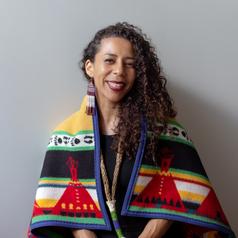
Suzanne Shoush
Indigenous Health Faculty Lead, Department of Family and Community Medicine, Faculty of Medicine, University of Toronto
Dr. Shoush is a Black/Indigenous physician (St'atl'imx/Sudanese) physician and lecturer in the Temerty Faculty of Medicine, as well as the Indigenous Health Faculty Lead with the Department of Family and Community Medicine.
She has Degrees in both Engineering and Medicine, and is currently a Master's Candidate at the University of Toronto IHPME. She practices as a Family Physician in Toronto.
Less ![]()
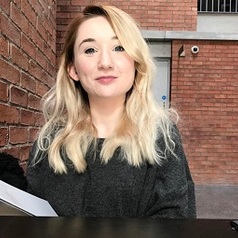
Suzanne Whitten
Lecturer in Political Theory and Philosophy, Queen's University Belfast
Working within political theory, my current area of research examines freedom of speech, academic freedom, and neo-republicanism.
I have a BA(Hons) in Philosophy, an MA in Moral, Legal, and Political Philosophy, and a PhD in Philosophy, all gained at Queen's University Belfast.
Less ![]()
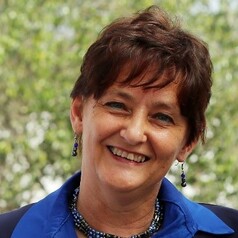
Suzi Malan
Manager: Partnerships and Projects at Department of Family Medicine, University of Pretoria
Dr Suzi Malan is currently working for the University of Pretoria in a multi-disciplinary academic environment with a focus on sustainable community development, particularly in the field of primary healthcare and One Health. During the COVID-19 pandemic, she acted as project manager of two large collaborations with mine companies to support mine communities and mineworkers with providing homebased care. Suzi thrives in environments focused on finding holistic policy solutions related to any of the country’s environmental and societal challenges.
Less ![]()
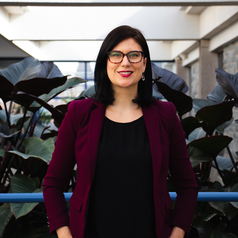
Suzie Dunn
Assistant Professor, Law, Dalhousie University
Suzie Dunn is an Assistant Professor in Law & Technology for 2021-2022. She will teach Contracts and Law and Technology in the first semester, and Contracts and Intellectual Property in the second term. She is currently a PhD candidate at the University of Ottawa, Faculty of Law. While at the University of Ottawa, she acted as a part-time professor where she taught Contracts Law and the Law of Images. She was awarded the Joseph-Armand Bombardier Scholarship for her research which centers on the intersections of equality, technology and the law, with a specific focus on technology-facilitated violence, deepfakes, and impersonation in digital spaces. She will also coach the Harold G. Fox Intellectual Property moot team
Less ![]()
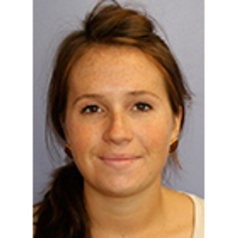
Suzy Solley
PhD Candidate, Queen Mary University of London
My research interests are primarily in gender, development, intersectionality, well-being, gendered agency, qualitative methods and South Asian studies.
My doctoral research explores intersectionality, well-being and agency amongst Nepali widows. The methodological approach taken involves a triangulation of qualaitive methods. My research hopes to not only contribute empirically to the limited scholarship on widowhood, especially in Nepal, but also conceptually to reimagine approaches to understanding and theorising widowhood. With this doctoral research, and my personal pursuits outwith this work, I hope to bring attention to the issue of widowhood and in some way improve the lives of Nepali widows.
Less ![]()
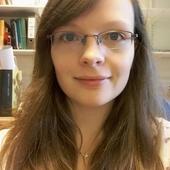
Suzy White
Post-Doctoral Research Assistant, Ecology and Evolutionary Biology, University of Reading
Less ![]()
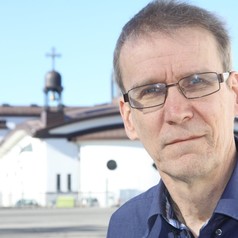
Svante Lundgren
Researcher, Lund University
Svante Lundgren is Associate Professor of Jewish Studies from Åbo Akademi University, Finland, and works as a researcher at the Centre for Theology and Religious Studies and the Centre for Advanced Middle Eastern Studies at Lund University, Sweden. His research interests include modern Jewish history and thought, antisemitism, and Jewish-Christian relations, but also Christian communities in the Middle East, especially Armenians and Assyrians. He has published extensively on the Armenian Genocide and on modern and contemporary Armenian issues. He acted as the narrator in the documentary movie Map of Salvation (1915), which tells the story of five women missionaries who were eyewitnesses to the Armenian Genocide. In 1998 he was awarded with the International Erich Fromm Prize for his book on the religious thought of Erich Fromm.
Less ![]()
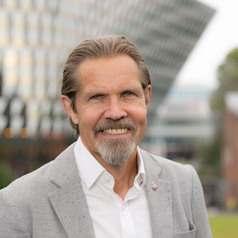
Sven Bölte
Professor of Child and Adolescent Psychiatric Science, Karolinska Institutet
I am Professor of Child and Adolescent Psychiatric Science since 2010 at KI. Additionally, I direct the Center of Neurodevelopmental Disorders at KI (KIND), and head the Neuropsychiatry Division at the Department of Women’s and Children’s Health. On the clinical side I work as a senior consultant in clinical psychology and specialist in neuropsychology at child and adolescent psychiatry Stockholm.
Less ![]()
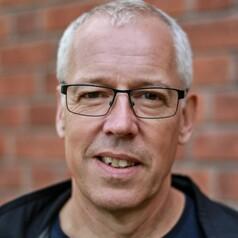
Sven Sandin
Associate Professor, Icahn School of Medicine at Mount Sinai, New York, Karolinska Institutet
Sven Sandin is a statistician and epidemiologist with 35 years of experience, 200 research publications and an Associate Professor at the Departments of Psychiatry at Icahn School of Medicine at Mount Sinai School of Medicine, New York.. He has a background from the pharmaceutical industry where he gained broad experience in design and analysis of clinical trials, phases I to IV, production and toxicology. Since joining Karolinska Institutet in 2003 he has been involved in studies of pregnancy related outcomes, psychiatric epidemiology, cancer, autoimmune diseases and mapping risk to occupation and familial exposure using the Swedish registers.
His current research focus is on the etiology of Autism Spectrum Disorders. As such he is the PI of a NIH funded project examining autism risk in families with Rheumatoid arthritis (RAASD) and the PI of a project funded by the Swedish Research Council examining etiological links between autism and preterm birth.
He is the PI of a two genetic data collections in Sweden. One includes 3,000 individuals with autism in Sweden and another includes more than 3,000 individuals with obsessive-compulsive disorder, Tourette syndrome and tics. The purpose of the genetic studies is to identify genes and possible environmental factors that increase the risk of developing the different disorders.
He is the PI of the Women Lifestyle and Health cohort (WLH) which was set up to create a large prospective cohort designed specifically to investigate the association between lifestyle factors (exogenous hormones and dietary habits) and cancer and cardiovascular diseases in young women. The cohort includes 50,000 women who answered an extensive questionnaire in 1991/92, a follow-up questionnaire in 2003/04.
Less ![]()
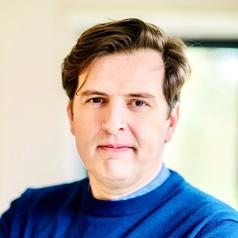
Sven Vanneste
Professor of Clinical Neuroscience, Trinity College Dublin
Sven is leading the Lab for Clinical and Integrative Neuroscience (Lab CLINT) at Trinity College Institute for Neuroscience at Trinity College Dublin. Lab CLINT aims to advance fundamental knowledge of human brain function and to use this knowledge to help people with psychiatric and neurological disorders. Our research integrates multimodal brain imaging techniques with novel invasive and non-invasive neuromodulation techniques to determine mechanisms underlying neuroplasticity dysfunction. More specifically, we work to understand the mechanisms of (mal)adaptive plasticity and develop new treatment approaches for different neurological (pain, tinnitus, Parkinson's disease, cognitive impairment) and psychiatric diseases (addiction, OCD, depression).
Less ![]()

Sviatlana Kroitar
Honored Research Visiting Fellow, Labour Studies, University of Leicester
Less ![]()
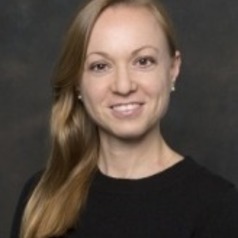
Svitlana Chernykh
Senior Lecturer, Australian National University
Svitlana Chernykh is a Senior Lecturer at the School of Politics and International Relations at the Australian National University (ANU). Prior to coming to ANU, she was a Postdoctoral Research Fellow at the University of Oxford. She is the recipient of the 2009 Paul Lazarsfeld Award for the Best Paper in Political Communication from the American Political Science Association and the Discovery Early Career Researcher Award from the Australian Research Council (2016-2018). Her research focuses on democratisation, comparative political institutions (election, parties, constitutions), and executive-legislative relations. Her work has been published in many of the discipline’s leading journals, including the Journal of Politics, Comparative Political Studies, Political Communication, Legislative Studies Quarterly, and Political Research Quarterly.
Less ![]()

Swapna Reddy
Clinical Associate Professor in Health Policy, Arizona State University
Swapna Reddy, JD, DrPH, MPH is a clinical associate professor at Arizona State University's College of Health Solutions. At Arizona State University, Dr. Reddy teaches students in undergraduate and graduate coursework. She serves as faculty at Arizona State University’s Barrett, the Honors College (Medical Studies). Additionally, she is an adjunct assistant professor in Health Care Administration at the Mayo Clinic Alix School of Medicine- Arizona. Dr. Reddy was recently named as a Fulbright Specialist.
Dr. Reddy’s primary research interests are how law and policy can be utilized as tools to improve population health and health outcomes, reduce health disparities and inequities. She has presented at various international, national and local conferences and published on issues related to the health care of high need populations. Dr. Reddy regularly comments to the media on issues related to health policy and disparities and has a monthly "Reddy Health Policy News" segment on Arizona PBS' Arizona Horizon show and was a co-cost on Arizona PBS' Emmy nominated topical news show, "Break It Down." She has also been featured on BBC, PBS, NPR, KJZZ, NBC News, Bloomberg News, Phoenix Business Journal, ABC 15 Phoenix, Cronkite News and ASU Now.
Prior to joining Arizona State University, Dr. Reddy has held a variety of health policy and equity positions related to improving the health of low income communities, particularly affecting women, children and working families. Prior experience includes: Harvard Medical School/Brigham and Women's Hospital- Women's Health Policy and Advocacy Program; CASA at Columbia University; The Children's Defense Fund-New York; the Texas Senate; Texas Health Institute; and The University of Texas School of Public Health.
Less ![]()
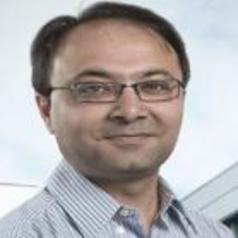
Swapnesh Masrani
Swapnesh Masrani is currently Lecturer at the University of Stirling. Swapnesh is the Deputy Director of the Stirling MBA. His research interests are in management history and strategic management. Swapnesh obtained his PhD from the University of St Andrews where he examined the strategic response of firms to growing international competition in the Dundee jute industry during the 20th century.
Currently he is researching the origins and development of governance structures of large businesses in India during the 20th century.
Less ![]()
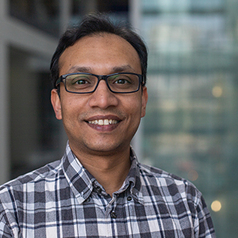
Swrajit Sarkar
Senior Lecturer in Nutrition, City, University of London
Swrajit is a registered public health nutritionist with the association for nutrition (UKVRN), and a member of the Nutrition Society, a full member of the Royal Society of Biology and chartered biologist (CBiol), and fellow of the Royal Society of Public Health (RSPH). His educational background includes a BSc (H) in Biosciences: Medical Biochemistry and Molecular Biology, Masters by Research (MRes) in Public Health Nutrition and a three year doctoral programme in Public Health Nutrition.
Previous to his current role has worked as an Associate Dean Student Experience (Faculty of Health and Social Sciences) at Bournemouth University, he was also a senior lecturer in nutrition, he was working as an associate senior lecturer in food and nutrition at Leeds Trinity University and he was a lecturer of nutritional sciences at the University of Central Lancashire. He has also worked as an associate of access and widening participation unit and part-time Lecturer of the University of Greenwich.
His key research has been in the field of non-communicable diseases risk identification among south Asian Communities living in the United Kingdom, although he has a broader interest in nutrition-related non-communicable diseases (NR-NCDs) in developing countries and the impact of the nutrition transition on NCD prevalence among migrants from developing countries into developed countries. He is a member of the Africa Nutrition Society (ANS) and have assisted the ANS in organising the African Nutrition Epidemiology Conferences (ANEC) in Kenya and South Africa.
Less ![]()
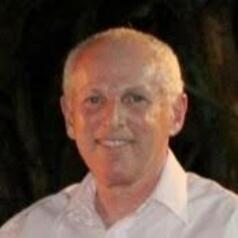
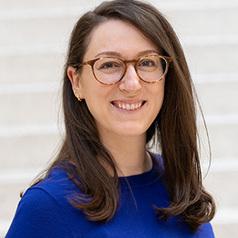
Sydney Hartman-Munick
Assistant Professor of Pediatrics, UMass Chan Medical School
Sydney Munick-Hartman, assistant professor of pediatrics at UMass Chan Medical School, is a board-certified pediatrician and fellowship trained adolescent medicine physician with expertise in eating disorders. Dr. Munick-Hartman is the president of the New England Regional Chapter of the Society for Adolescent Health and Medicine. She is a pediatrician at UMass Memorial Children’s Medical Center. She has published on increases in eating disorders during the pandemic as well as adolescent body image.
Less ![]()
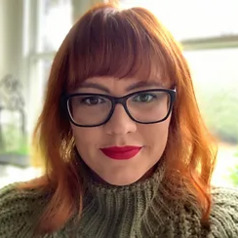
Sydney Lines
Sydney Lines holds a B.A. English Literature, B.A. Museum Studies, M.A. English Literature, and M.A. Creative Enterprise and Cultural Leadership from Arizona State University. She is Project Manager of the Winnifred Eaton Archive and Project Manager for the UBC Public Humanities Hub. Her work has appeared in Oxford Bibliographies in American Literature and is forthcoming in Legacy: A Journal of American Women Writers. She is currently writing a dissertation on Winnifred Eaton and Icelandic Canadian author Laura Goodman Salverson.
Less ![]()
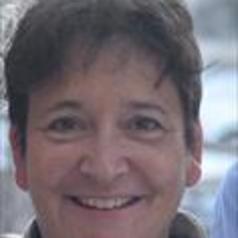
Sydney Rosen
Professor of Global Health, Boston University
Sydney Rosen, M.P.A., is a Research Professor in the Department of Global Health and the Center for Global Health & Development of the Boston University School of Public Health and the co-director of the Health Economics and Epidemiology Research Office (HE2RO) of the Wits Health Consortium at the University of the Witwatersrand in Johannesburg, South Africa. In collaboration with HE2RO and colleagues at BUSPH, she leads an interdisciplinary team that is carrying out a set of studies on the effectiveness, costs, and benefits of HIV/AIDS care and treatment interventions. She has also worked on other applied economics projects at the Center, including research on the economics of tuberculosis, antimicrobial resistance, malaria prevention and treatment, and air pollution. Her technical training is in public policy analysis and applied economics. She came to the Center in 2001 from the Health Office of the former Harvard Institute for International Development (HIID). Before joining the staff of the Health Office, she managed a set of HIID environmental policy projects in the former Soviet Union. She is also the co-founder and former executive director of WorldTeach, Inc., a nonprofit organization that places volunteer teachers in developing countries. She holds a B.A. from Harvard University and a master’s degree from the Kennedy School of Government at Harvard.
Less ![]()
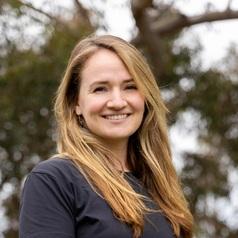
Sydney E. Smith
Ph.D. Candidate in Computational Neuroscience, University of California, San Diego
As a Neuroscience PhD candidate at UC San Diego, I specialize in neural signal analysis. Our brains produce many different kinds of signals--chemical, magnetic, electrical--and the ways that neuroscientists use these signals is essential to how we research the brain. I'm specifically interested in the brain's electrical signals, or "brain waves" that we can measure using tools like the electroencephalogram (EEG). When these electrical signals are measured in research experiments, neuroscientists use complex mathematical methods to extract information from their brain waves. This is where my research comes in: how does the math we use influence how we think about the brain? What happens when we're using that math incorrectly or misinterpreting it?
These are the questions I face every day in my research. So far, I've been able to answer some pretty big questions about brain waves and how they change in patients receiving treatment for severe depression. By challenging our assumptions about brain waves, I hope to help settle long-standing mysteries about the brain and uncover new, exciting discoveries that help us better understand how the brain works in healthy cognition and disease.
Currently, I'm a PhD candidate in the Neurosciences Graduate Program, supervised by Dr. Bradley Voytek in the Neural and Data Analytics Lab at the University of California, San Diego. I have a B.S. in Biopsychology from UC Santa Barbara and also volunteer as a writer for Stories of Women in Neuroscience, a blog and podcast that features women neuroscientists, their research, and journeys in academia.
Less ![]()
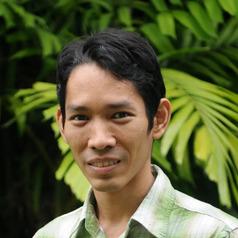
Syed Assad
Research Associate, Quantum Science & Technology, Australian National University
Syed Muhamad Assad received the B.Sc. degree with a double major in physics and computational science from the National University of Singapore, and the joint Ph.D. degree in realization of harmonic entanglement between a light beam and its second harmonic, and theoretical proofs of security for quantum key distribution protocols from the National University of Singapore and The Australian National University in 2011. He was with the National University of Singapore as a Teaching Assistant and the Centre for Quantum Technologies as a Research Assistant. He has been with the Quantum Optics Group, The Australian National University, since 2011.
Less ![]()
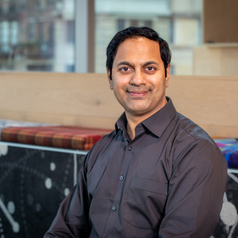
Syed M Nawazish Ali
Research Fellow in Transport Electrification, RMIT University
My research interests include data analysis of public transportation electrification, electric vehicle drive control, electric vehicle battery degradation studies, optimisation algorithms for battery health estimation, and impact of electric vehicle penetration on grid.
Less ![]()
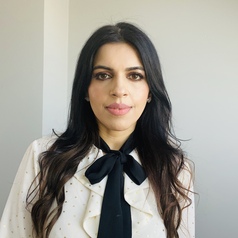
Syka Iqbal
Lecturer in Psychology, University of Bradford
I am currently a lecturer in Psychology at University of Bradford. Prior to this, I worked as a lecturer at Birkbeck University and Manchester Metropolitan University.
My research investigates health behaviours, specifically in relation to ethnically diverse groups. I have worked collaboratively with the NHS on tackling health inequalities and building behavioural models for change. I am interested in mental health, health inequalities, critical, and community psychology. I also have expertise on rapid qualitative research and public and patient involvement.
Less ![]()
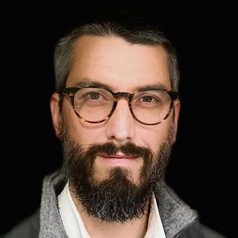
Sylvain Barbot
Associate Professor of Earth Sciences, USC Dornsife College of Letters, Arts and Sciences
My research focuses on understanding the dynamics of the lithosphere-asthenosphere system at time scales relevant to the seismic cycle. My work revolves around modeling seismic and geodetic data with the long-term goal of improving resilience to seismic hazards.
Less ![]()
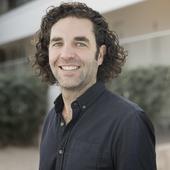
Sylvain Bureau
Professeur - Directeur Chaire Improbable by Galeries Lafayette, ESCP Business School
Less ![]()
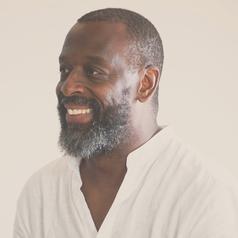
Sylvan Baker
Senior lecturer, Royal Central School of Speech & Drama
Dr Sylvan Baker is an Artist, Practitioner and Researcher who has been working in Applied Arts & social justice for over 30 years.
He is a Senior Lecturer at the Royal Central School of Speech and Drama, London. Beyond Central, his practice has taken place in the UK and globally in sites across Brazil and the US. He has delivered projects in a diverse range of communities and contexts from favelas to hospitals, and has a specific interest in participatory collaboration, transitional justice and interventions in sites of conflict. His current research projects work with young researchers with experience of the UK care system, and separately with neurodivergent young people to develop resources to support positive adolescent mental health.
Less ![]()
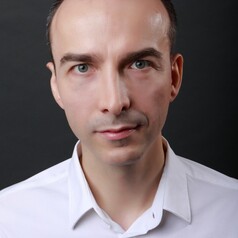
Sylvester Kaczmarek
Chief Technology Officer, Imperial College London
Sylvester Kaczmarek is chief technology officer at OrbiSky Systems, where he specializes in the integration of artificial intelligence, robotics, cybersecurity, and edge computing in aerospace applications. His expertise includes architecting and leading the development of secure AI/machine learning capabilities and advancing cislunar robotic intelligence systems. Read more at SylvesterKaczmarek.com
Less ![]()
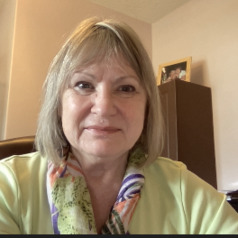
Sylvia Bell
Senior Instructor of Educational Leadership, Thompson Rivers University
I hold a Doctorate of Education, specialising in Educational Leadership from the University of Calgary (2014), a Master of Arts in Leadership and Administration from Gonzaga University (2007), a Bachelor of Education from Simon Fraser University (2002) and a Bachelor of Arts in English from Thompson Rivers University (1996).
I had years of elementary classroom experience before going into administration. I was the principal at Don Titus from 2012-2016; prior to that I was the principal of Windrem Elementary. As a teaching principal, I taught a variety of things from Music prep to Learning Assistance. But most of my teaching was helping our most vulnerable students learn literacy.
Currently I am on faculty at TRU where I teach in the masters program and serve as an Assessor and researcher in the Prior Learning and Recognition department.
Less ![]()
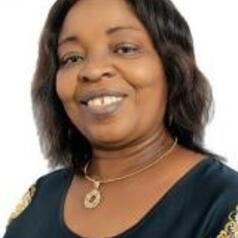
Sylvia Charity Akotia
Professor of Psychology, University of Ghana
Charity S. Akotia is a professor in the Department of Psychology, School of Social Sciences, University of Ghana, Legon. Her specialty is social/community psychology and she teaches both at the undergraduate and postgraduate levels. She holds a Bachelor of Arts degree in psychology and Russian from the University of Ghana, a Master of Arts degree in community psychology from Wilfrid Laurier University, Ontario, Canada, and a PhD from the University of Ghana.
Her main research interest is in suicidal behaviour in a cultural context and how to prevent suicide. She has collaborated with colleagues from Norway and Uganda to work in this area of psychology for several years. In recent times, she has also developed an interest in the multifaceted needs of the ageing and how they navigate on a daily basis to improve their lived experiences. She has also done some work on the psychology of eating behaviour. This area of research is new in Ghana and is a very interesting area where an attempt is made to understand how people eat and what eating means to them. Prof. Akotia also researches personhood in an African context. This project is funded by the Mellon Foundation and focuses on understanding how people conceptualise personhood and the factors that determine personhood.
She is a member of the Ghana Psychology Association (GPA) and has been licensed by the Ghana Psychology Council. Internationally, she is a member of the International Association for Suicide Prevention (IASP) and the Critical Suicidology Group. She is the current national representative of the IASP and a co-chair of the Council of National Representatives of the IASP.
Research area(s) (including ongoing research).
Suicide and suicide prevention
Gender and gender role attitudes
Ageing, care and spirituality
Psychology of eating behaviour
Personhood in an African context
Less ![]()
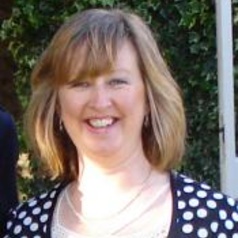
Sylvia H. Duncan
Senior Research Fellow, Microbiology, University of Aberdeen
Dr Sylvia Duncan is a senior Research Fellow at the Rowett Institute, University of Aberdeen. She has considerable experience in anaerobic microbiology and conducts research on a large bacterial strain collection used for research purposes. Her research interests include elucidating the composition of the human gut microbiota, the impact of diet and gut environmental factors on modulating the gut microbiota to promote health and prevent disease.
Less ![]()
- Market Data
















